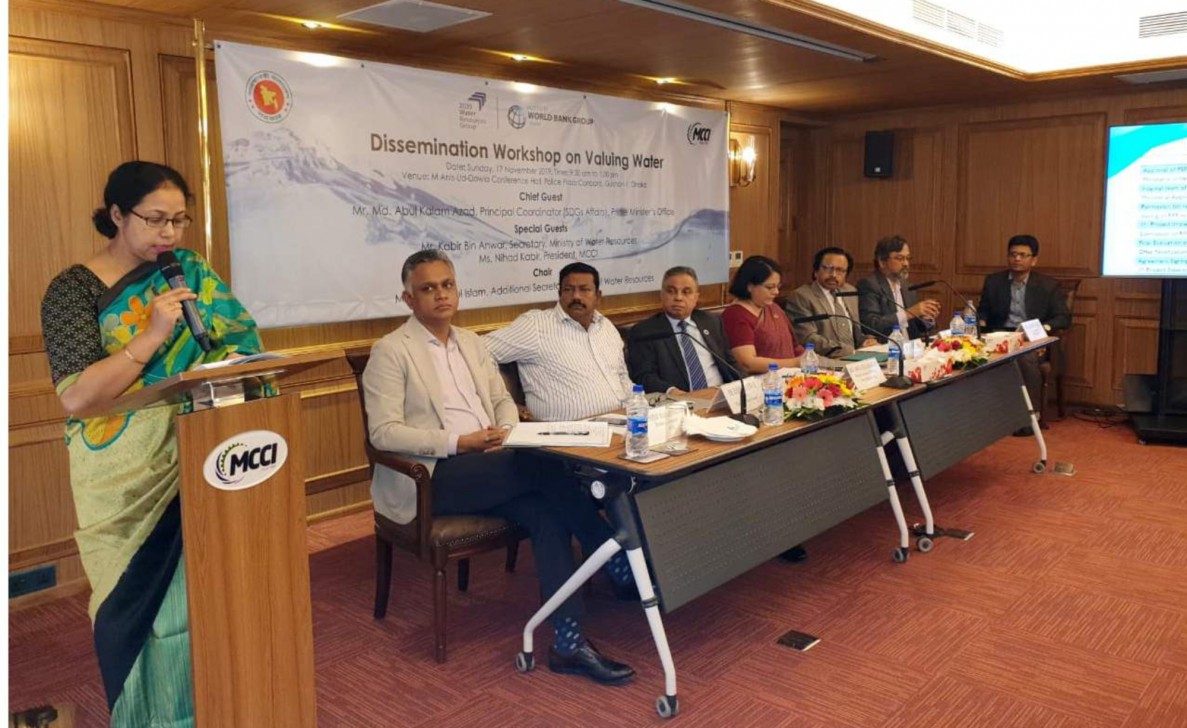Value water for sustainable development: analysts

Bangladesh can take a leading role in enabling sustainable water management and ensure long-term economic growth by valuing water as an integral part of policymaking and investment decisions, speakers said yesterday.
Understanding the value of water is critical for sustainable and integrated water resource management, which will ensure sustainable socio-economic development in the long run, they said.
The experts spoke at a programme styled “Dissemination workshop on valuing water initiatives” at the Gulshan office of the Metropolitan Chamber of Commerce & Industries (MCCI). The water resources ministry in partnership with the MCCI and 2030 Water Resources Group, a platform of the World Bank, organised the workshop, said the chamber in a statement.
Speakers at the event included Md Abul Kalam Azad, principal coordinator for SDG affairs at the Prime Minister’s Office, Kabir Bin Anwar, water resources secretary, Mahmudul Islam, additional secretary of the water resources ministry, Syed Nasim Manzur, managing director of Apex Footwear Ltd, and Nihad Kabir, president of the MCCI.
Bangladesh ranks the 106th in terms of the reliability of water supply and the 126th when it comes to exposure to unsafe drinking water, the statement mentioned citing a study. Forty-one percent of the country’s population is exposed to unsafe drinking water.
The act of valuing water recognises and considers all benefits provided by water that encompass economic, social and ecological dimensions. Thus, in most cases, the value of water is higher than the market price for water, the statement added.
However, it is important to highlight that valuing water is not pricing water. The objective of valuing water is not to increase water prices, but to make more informed decisions to confirm optimal allocation and usage of water.
According to the World Business Council on Sustainable Development, undertaking the process of valuing water helps businesses in five key areas: enhance decision-making; maintain and enhance revenues; reduce costs; manage risks; and build up reputation.
Two multi-stakeholder and technical committees led by Abul Kalam Azad and Mohammad Rezaur Rahman, a professor of the Bangladesh University of Engineering and Technology, have already been formed for a study on developing operational shadow prices for water to support informed policy and investment decision making processes.
